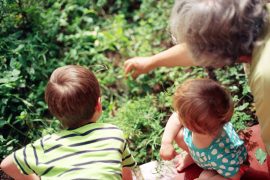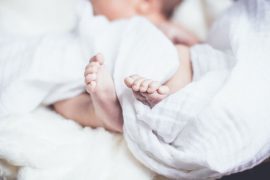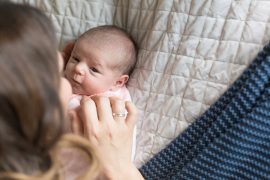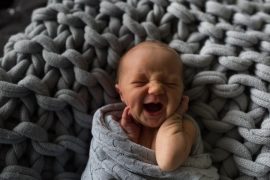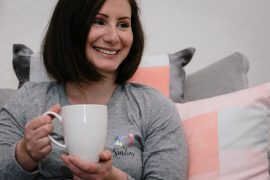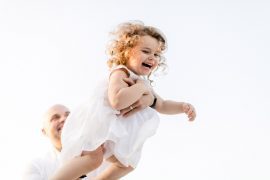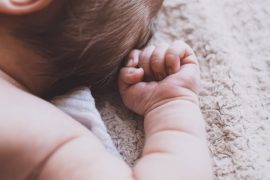Studies have shown that infants prefer to listen to words that match the sounds produced in their babble. For example, an infant who produces many “bababa” sounds will prefer made-up words containing “b”, such as “bapeb”, “pabep” and “pobep”. This is similar to the “cocktail-party effect”, where even in a noisy room we can pick out words that are more relevant to us, such as our name or the town where we live.
In the same way, infants’ attention is drawn to words that match the sounds they produce most often, helping them pick out words from the speech stream that they’re more likely to be able to produce. It’s no coincidence that infants’ very first words have babble-like qualities: “mummy”, “daddy”, “baby” and onomatopoeic words such as “baa baa” and “woof woof”.
The importance of infants’ perception of their own vocalisations is supported by research into babies who are deaf. Studies of deaf babies have shown that they do babble but they start babbling much later than hearing infants.
Without feedback on their own babble production, deaf infants typically cease to babble after a few months. These studies have allowed us to piece together a more comprehensive picture of how human language emerges, taking into account the importance of infant vocalisation long before they produce their first word.
Babies learn from the adult world around them, but they also learn from their own early vocalisations. These new findings suggest that this begins much earlier than we previously thought. Perhaps language production does not start with words or even babble, but with vocalisations that begin long before the first speech-like sounds are produced.![]()
Catherine Laing, Lecturer in Child Language Acquisition, Cardiff University
This article was originally published on The Conversation. Read the original article.

